

BEIJING, July 9 (Xinhua) -- In person, Japanese actor Yano Koji appears well natured and humorous. But, on screen when he is wearing a Japanese Imperial Army uniform, he transforms into a menacing character.
Talking about being cast in the role of "demon", he tells Xinhua: "I don't care whether the characters are good or bad. I just want them to be illuminating, and for the audience to understand that war is bad."
Yano Koji, 41, is one of the most popular Japanese actors in China.
However, the actor admitted to knowing very little about China when he first arrived in 2000.
"I only knew some ancient fictions, like 'Journey to the West' and 'Romance of Three Kingdoms'. I couldn't utter a single Chinese word," he said.
Although he enrolled on a Chinese language course, he was far from an ideal student.
"I played truant often," he admitted, flashing a wide grin. When the course was about to finish, he said he could barely haggle.
Despite his lack of commitment to his studies, he stumbled across some good luck. A friend recommended him to a director, who was making a TV series on the late Qing Dynasty (1636-1912). When he met him for the first time, the director exclaimed: "The Japanese emperor!"
"I didn't know what he said," Yano Koji said. "When the interpreter told me, I was shocked."
Playing the Japanese emperor in the TV drama kicked off his acting career in China. Koji went on to play many Japanese soldiers -- the archetypal "bad guys" in the movies and TV.
He said sometimes the roles made him uncomfortable. "But I was committed to working hard."
In his spare time, he watched documentaries about the Sino-Japanese war. One particular film resonated with him, it featured some elderly Japanese talking about their guilt over the invasion of China.
In one TV drama, "The Proof of Memories", he played a Japanese officer who forced Chinese captives to work in a military base in Japan.
"At that time, Japan was being bombed every day, and the people had very little to eat," Yano said, adding that the director made sure the actors were underfed too, so that they could understand how the characters felt.
"The director said to me 'the war was cruel'. 'Both China and Japan were hurt by the war. You should show the audience how it tore people's lives apart through the pain you feel,' he told me."
The actor's father is 83-years-old and his mom passed away many years ago. He never met his grandparents -- they went missing during the war, and his parent grew up in foster families.
"I never even questioned where my grandparents went, until I learned more about the war," he said.
In Japan, he said, many young people didn't know much about history. "They spend a relatively long period of time learning ancient history, and rush through modern history," he said. "As our neighbors China and South Korea are sensitive about this subject, our ignorance might cause trouble."
Yano is still acting in Chinese war dramas, but his characters have changed. He recently played a peace-loving soldier, an anti-war advocate that killed his superior.
In the last scene, he added a few words himself.
"I said 'all those who love peace will understand what I do'," he said. "I want to highlight peace as something everyone has the right to enjoy."
He also dipped his toes in the business-drama and romantic-comedy genres, as a tragic tycoon and a macho underwear designer.
But Yano said his dream is to play Abe no Nakamaro, a Japanese scholar in China during the Tang Dynasty (618-907), who was a missionary that championed friendship between the two countries.
"As an actor, I am a conduit," he said. "Everyone who works between China and Japan could be a channel, and we could unite to make a difference, so that in spite of politics, the exchanges between Chinese and Japanese people shall never stop."
He remembers that in the 1970s and 1980s, China and Japan were on very good terms, in comparison to somehow strained ties these days as the Chinese are angered by Japan's attitude toward its wartime past, such as Japanese politicians' visits to the Yasukuni Shrine in Tokyo, known for celebrating war criminals.
"I do hope that in the future, we can reignite that same relationship," Yano said.
 Campus belle in HK goes viral online
Campus belle in HK goes viral online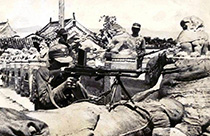 Lugou Bridge in 78 years: July 7 incident
Lugou Bridge in 78 years: July 7 incident Get ready for the world's most thrilling water rides
Get ready for the world's most thrilling water rides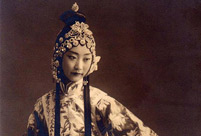 Evolution of Chinese beauties in a century
Evolution of Chinese beauties in a century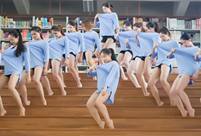 Creative graduation caps of ‘vigorous elves’
Creative graduation caps of ‘vigorous elves’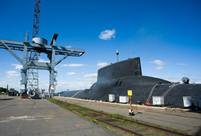 Typhoon class strategic Submarine in photos
Typhoon class strategic Submarine in photos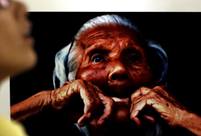 Japan’s crimes committed against "comfort women"
Japan’s crimes committed against "comfort women" Legendary life of a bee-keeping master in Hainan
Legendary life of a bee-keeping master in Hainan 4-year-old cute 'monk' spends summer holiday in temple
4-year-old cute 'monk' spends summer holiday in temple Top 10 most competitive Chinese cities in Belt and Road Initiative
Top 10 most competitive Chinese cities in Belt and Road Initiative Top 10 travel destinations in the world
Top 10 travel destinations in the world Xi talks peace at war memorial
Xi talks peace at war memorial Vietnam-US bond less rosy than it appears
Vietnam-US bond less rosy than it appears Furry funeral
Furry funeral Infrastructure investment boosted to stabilize growth
Infrastructure investment boosted to stabilize growth Day|Week